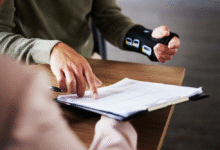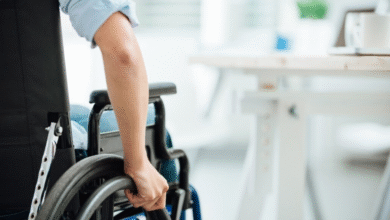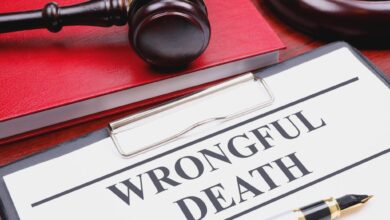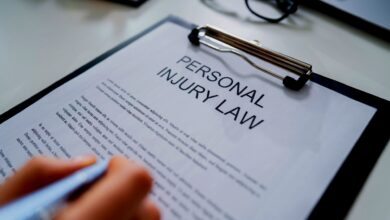How to Respond to Domestic Violence Legally: A Step-by-Step Guide

Domestic violence, an alarming issue, plagues countless individuals across the U.S. Despite its prevalence, many victims remain unaware of their legal rights and options. This guide aims to shed light on the avenues available for those affected, empowering them to take appropriate legal actions and protect themselves. Knowing and understanding these legal steps is critical for anyone dealing with such a situation.
Read More: Most Common Legal Defenses Against Domestic Violence Charges
Recognizing Domestic Violence
Domestic violence is more than just physical abuse; it encompasses emotional, psychological, and financial control exerted by one person over another within an intimate relationship. It’s vital to recognize the signs, which can range from overt acts like hitting or shouting to more covert ones like manipulation, threats, or control over finances. The aftermath of such acts can be devastating, leaving victims with deep emotional scars, and feelings of worthlessness, or fear.
Immediate Steps to Ensure Safety
If you or someone you know is in immediate danger, calling 911 should be the first step. Authorities are trained to handle domestic violence situations and can provide immediate protection. After ensuring physical safety, consider reaching out to local domestic violence shelters or organizations. These entities often offer resources such as safe housing, counseling, and legal guidance. If there are children involved, it’s paramount to prioritize their safety as well, which might involve alerting their school or caregivers about the situation.
Documenting the Abuse
Gathering evidence is crucial if legal actions are to be pursued. Document every instance of abuse, including taking photographs of injuries, saving threatening messages, or recording violent incidents if safe to do so. This can serve as compelling evidence when seeking a restraining order or pursuing charges.
Moreover, keep a detailed journal noting dates, times, and descriptions of each incident. Collaborate with medical professionals to document injuries, as their reports can be invaluable. Always store this evidence in a safe and discreet place, possibly with a trusted friend or a domestic violence lawyer.
Seek a Protective Order
Acquiring a protective order, often called a restraining order, is a legal avenue that can provide immediate protection from an abusive individual. To ensure the process is handled correctly and to maximize the chances of the order being granted, enlisting the help of a domestic violence lawyer from RB Isenberg can be invaluable.
The process involves filing a petition detailing the abuse, after which a judge may grant a temporary order. A formal hearing typically follows, where both parties can present their case. If granted, the order can restrict the abuser from contacting or approaching the victim. The duration and terms vary by state.
Legal Recourse and Charges
Beyond protective orders, victims can pursue criminal charges against their abusers. Depending on the nature and severity of the abuse, charges can range from misdemeanor assault to felony aggravated assault or stalking. When pressing charges, the local prosecutor’s office will handle the case. The evidence gathered, as mentioned in the “Documenting the Abuse” section, will play a pivotal role in the prosecution.
Understand the Emotional Aspects
Addressing domestic violence legally is a crucial step towards justice and safety, but the emotional healing journey is equally important. Victims often experience trauma, fear, guilt, and a myriad of other emotions. Recognizing these feelings, seeking therapy or counseling, and joining support groups can provide much-needed solace and understanding. It’s essential not to rush the healing process; everyone’s journey is unique. Some find solace in sharing their stories, while others prefer private healing. Seeking legal recourse with a domestic violence lawyer from RB Isenberg is a vital step, but addressing emotional health is equally paramount.
Read More: What Is Considered Domestic Violence in Florida?
Resources and Support
Numerous organizations and hotlines provide assistance, resources, and guidance for domestic violence victims. They offer shelters, counseling, legal advice, and more. Among the most notable are the National Domestic Violence Hotline and local non-profits dedicated to assisting victims. Leveraging these resources can provide a foundation for rebuilding one’s life post-abuse. Additionally, engaging with a lawyer can connect victims with further resources and networks dedicated to support and recovery, ensuring that every victim has a path forward toward a safer, brighter future.
Final Word
Domestic violence is a pressing issue, impacting countless lives daily. Understanding the legal pathways available can empower victims, ensuring they don’t suffer in silence. By taking proactive steps like documenting the abuse, seeking a protective order, and consulting with a domestic violence lawyer, victims can navigate their journey towards justice more effectively. Beyond legal actions, emotional healing and accessing supportive resources are paramount. Together, these steps form a comprehensive approach, allowing victims to reclaim their lives and move forward with hope and resilience.











